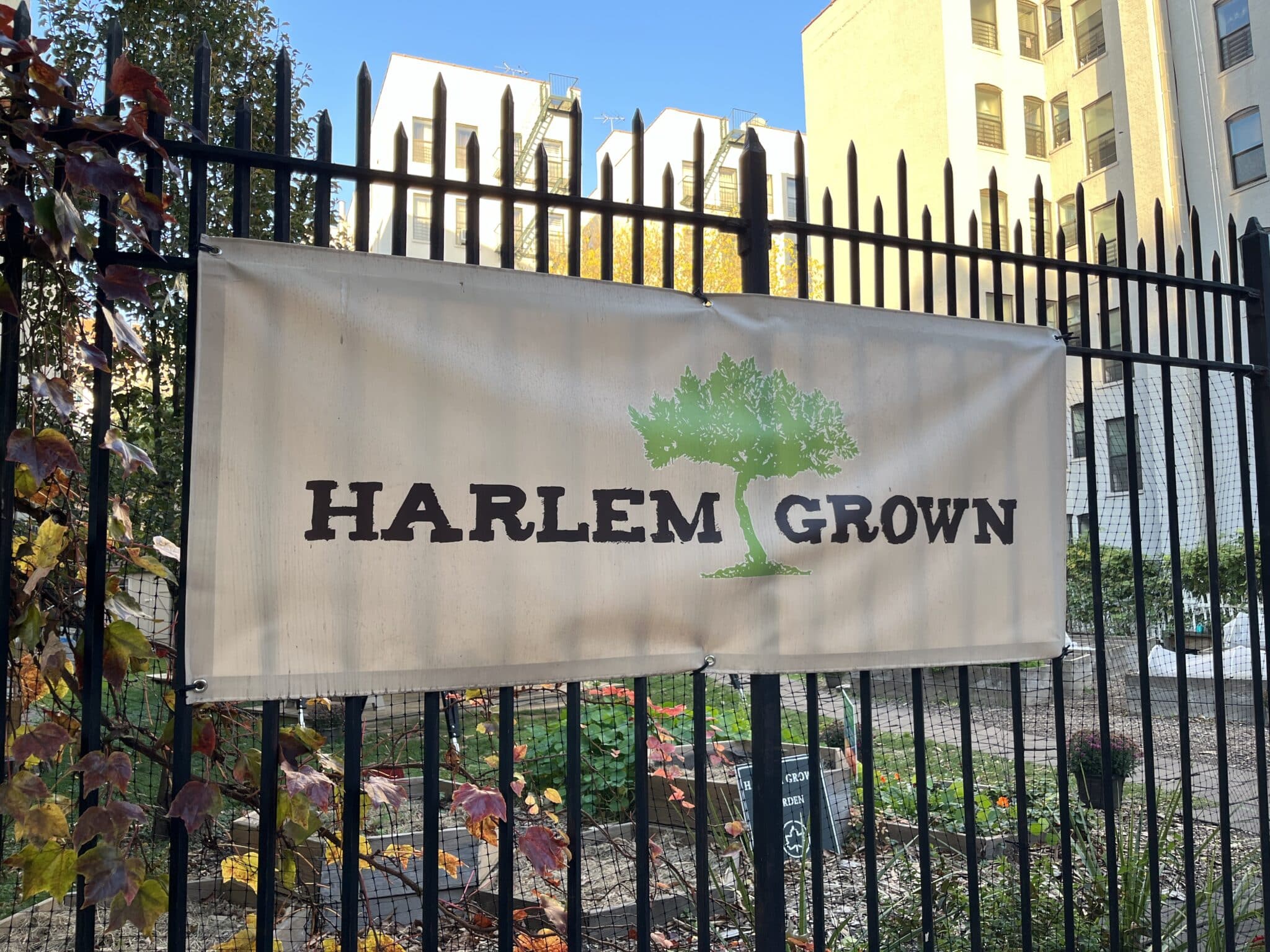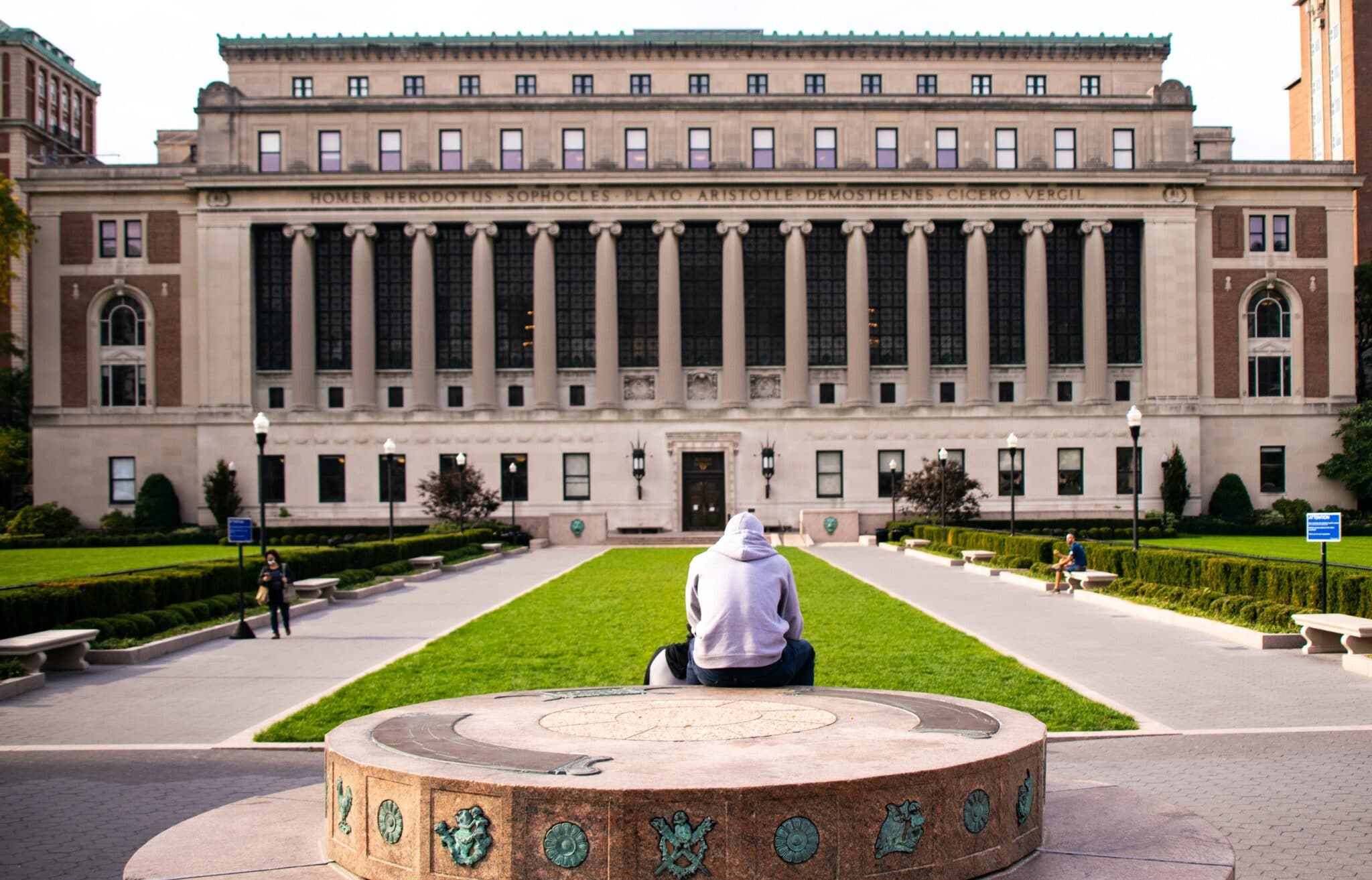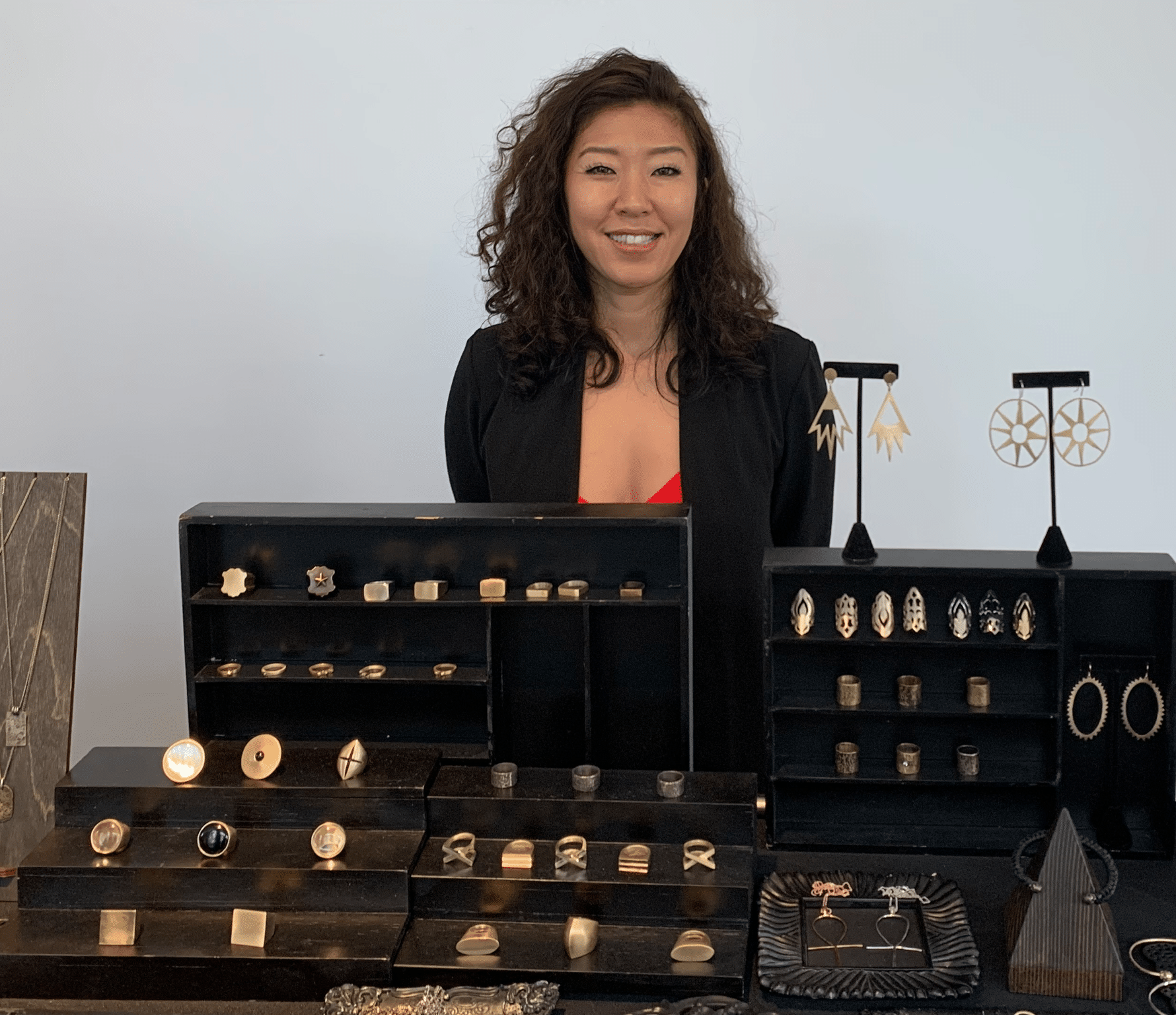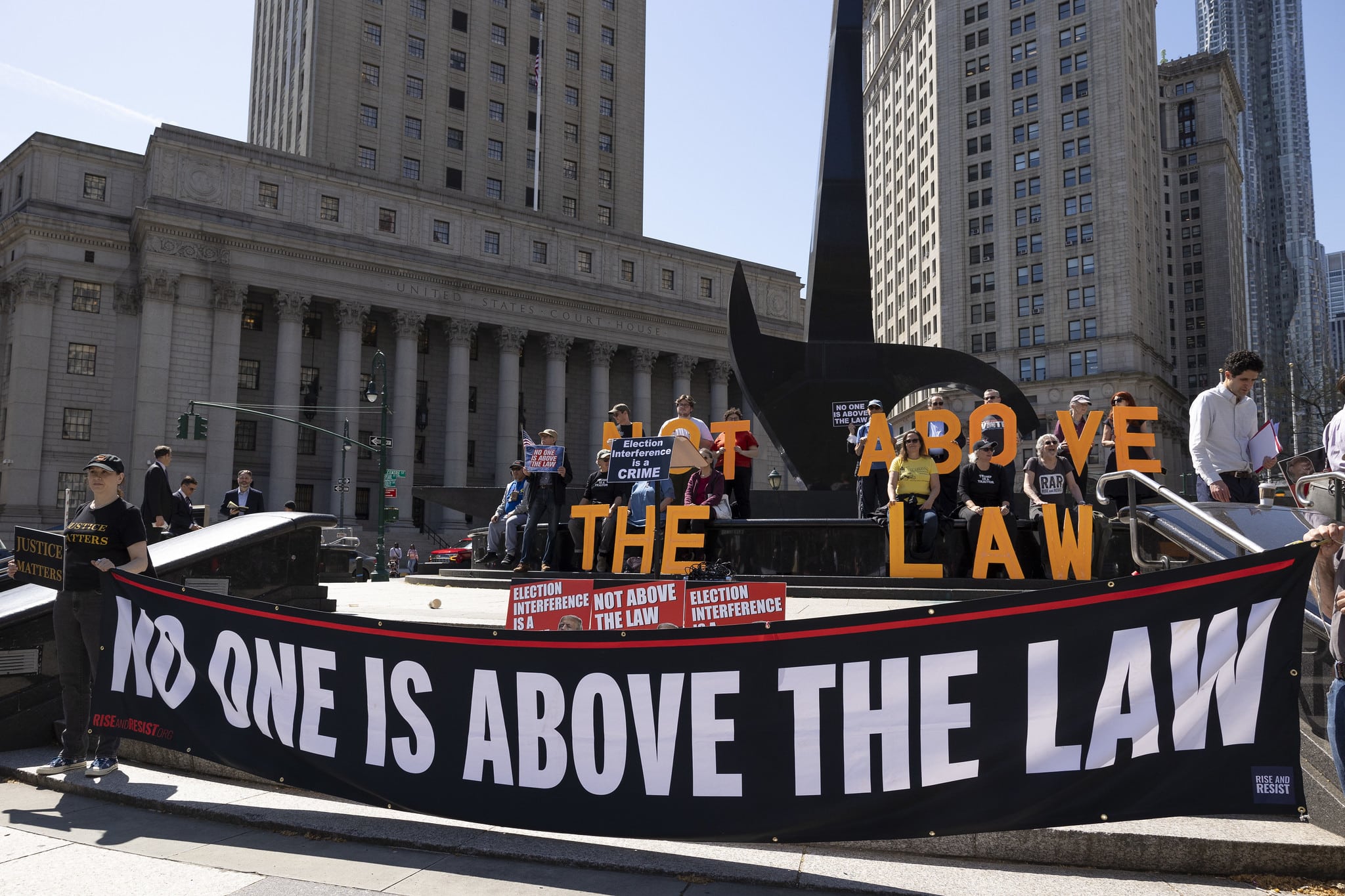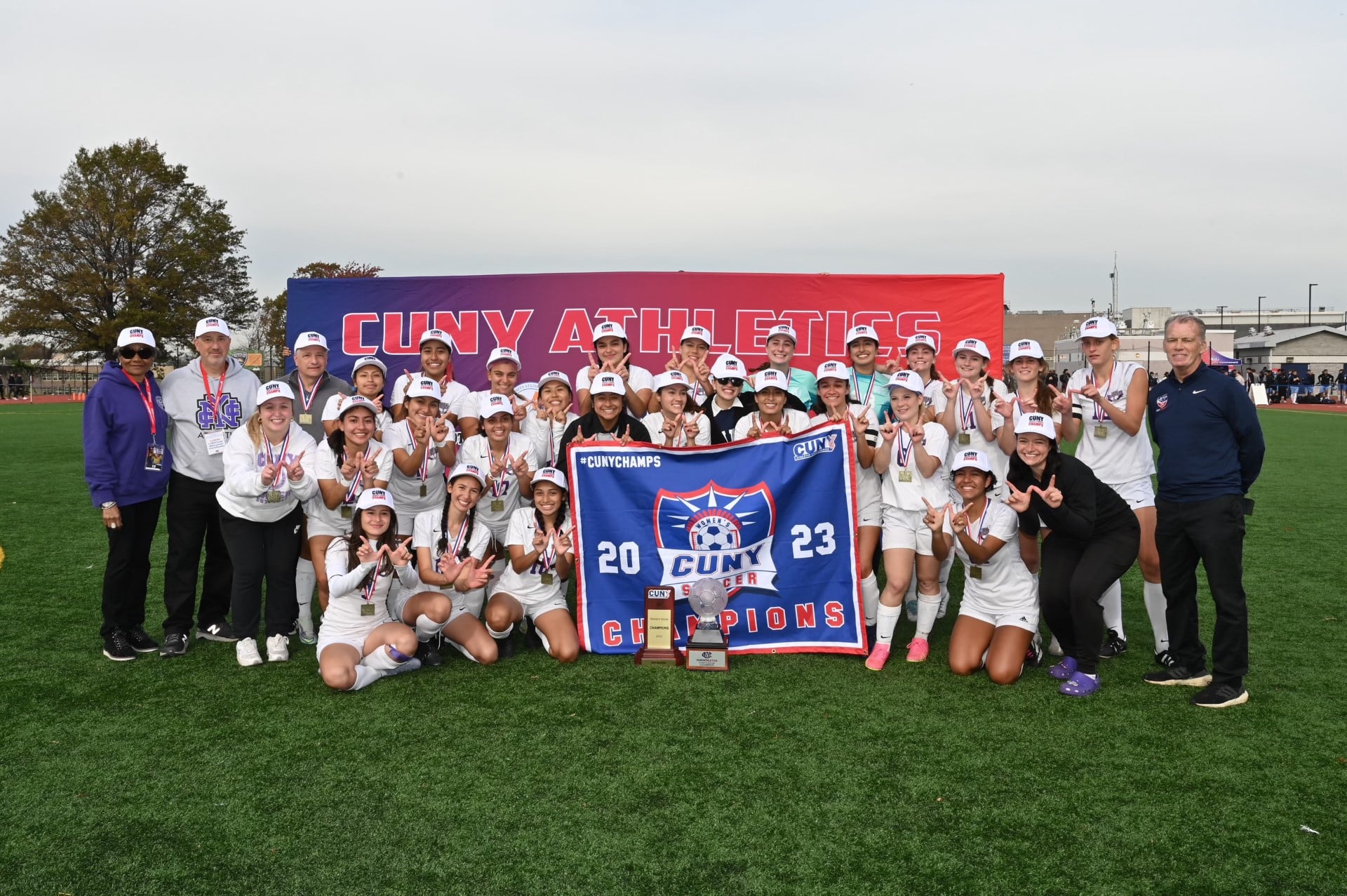The Harlem Grown farm location on 127th Street. Photo by Aaron Pietzonka
It’s 11 a.m. on a Friday in Harlem. Paul Hewett, who calls himself “Farmer Paul,” sits on a bench and watches people pick up fruits and vegetables from a farm stand in front of him. With his cargo pants, sunglasses, and work-worn hands, he looks like he grew the food himself. And he did, at least some of it. Farmer Paul works for Harlem Grown, an urban farming cooperative that organized this farm stand. “All of [the food] is going out to the markets, all free,” he explained.
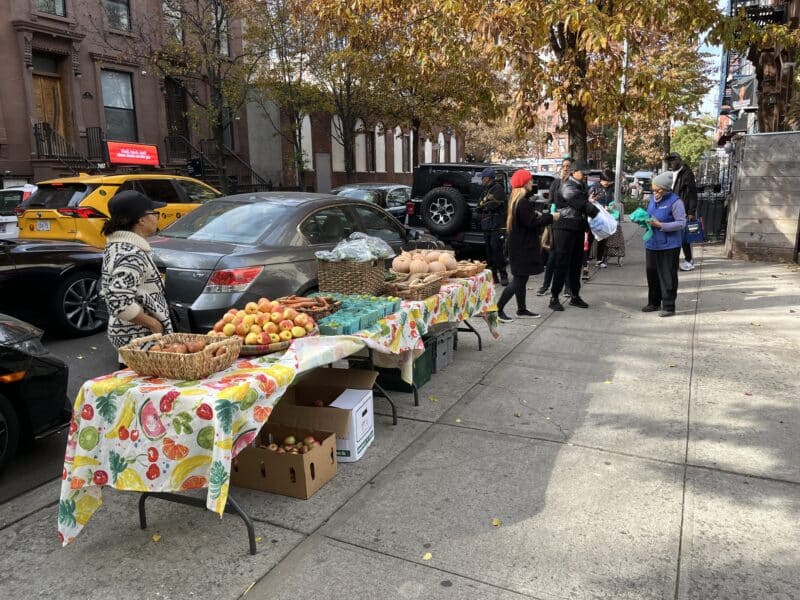
People waiting to buy fruits from the Harlem Grown food stand on 127th Street in Harlem, New York. Photo by Aaron Pietzonka
Urban farms have become important community spaces in New York. They are “… places where residents actively participate in the creation and stewardship of accessible open spaces that grow fresh food and engage both at-risk youth and isolated senior citizens,” CCNY urban scholar Cassim Shepard wrote in his book Citymakers. Harlem is no exception. Harlem Grown created its first farm in in 2011 and now manages 13.
Farmer Paul, who is an old friend of Harlem Grown founder Tony Hillary, remembers how everything started. Food justice was the name of the game. “This area was considered a food desert,” he said. “You had 30 to 40 fast-food restaurants right in the same area. But you couldn’t get no fresh vegetables, you know, and the top of it, the kids didn’t know nothing about eating healthy.”
Harlem Grown tries to change that by providing organic fruits and vegetables to the Harlem community, as well as opportunities where people can learn about urban farming.
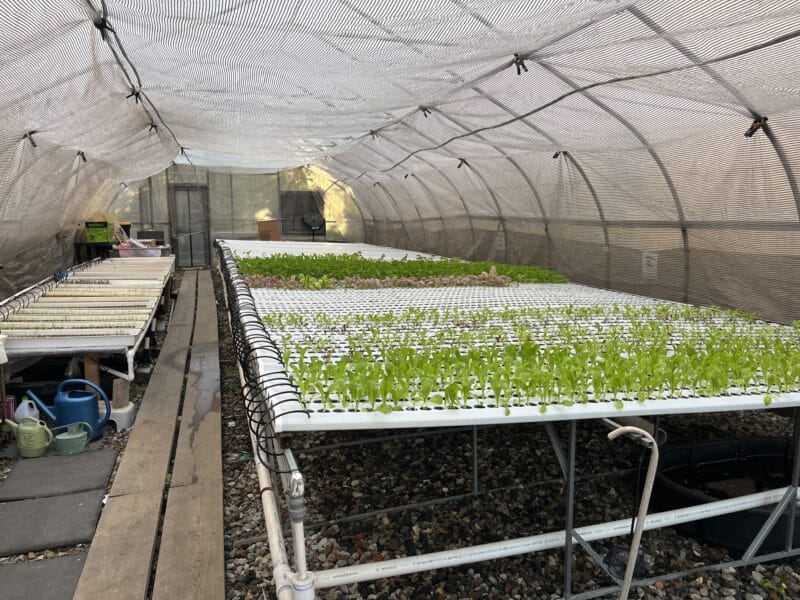
The Harlem Grown greenhouse apart of the 134th Street location. Photo by Aaron Pietzonka
The once-abandoned lot on 134th Street near Malcom X Boulevard that Farmer Paul plows is now a thriving farm. There are dozens of raised beds, a chicken coop and a greenhouse that turns out up to 3000 pounds of produce each year. It feels very welcoming, with benches at every corner and even a little library gazebo featuring books about urban farming.
Kids are at the center of the project. Harlem Grown partners with nine schools in Harlem to teach children about eco-friendly farming, healthy eating, and community engagement. The green spaces also give kids a safe place to play and have fun. Farmer Paul oversees four of the school projects and hopes that next year every class can have its own plant bed so that they can watch plants grow.
But it’s not just the kids who learn new things. The people who work for Harlem Grown, too, feel grateful for what they learn. David Anevil, the farmer in charge of the 127th Street plot, used to work as a security guard. He said, “All the knowledge I have about farming and agriculture, all originated from Harlem Grown.” He has been working with Harlem Grown for over a year and knows every nook and cranny of his little farm. Anna Aureliano, Harlem Grown’s “Central Farms Coordinator,” also pointed out that the farm program gives jobs to formerly incarcerated people, underlining the importance of community integration in the project.
For Anna, “It’s not just about growing food, it’s about growing community.” This is perhaps the single most important thing about Harlem Grown. Catherine, who preferred to keep her last name private, is a retiree and spends most of her time volunteering at the farms. She loves the Harlem Grown community. “I see people, I speak with them, smile with them. And that’s what Harlem Grown does for my soul. Not just for me handing out food, but for my soul.”
Catherine treasures her community work. “I don’t care if I’m sick or not, as long as I can put one foot before the other, I’m here.” Farmer Paul can’t quite believe that volunteers put so much work and passion into the project. “It blows my mind for a person to come after working 40 hours a week, to come and volunteer, and especially the compost area.”
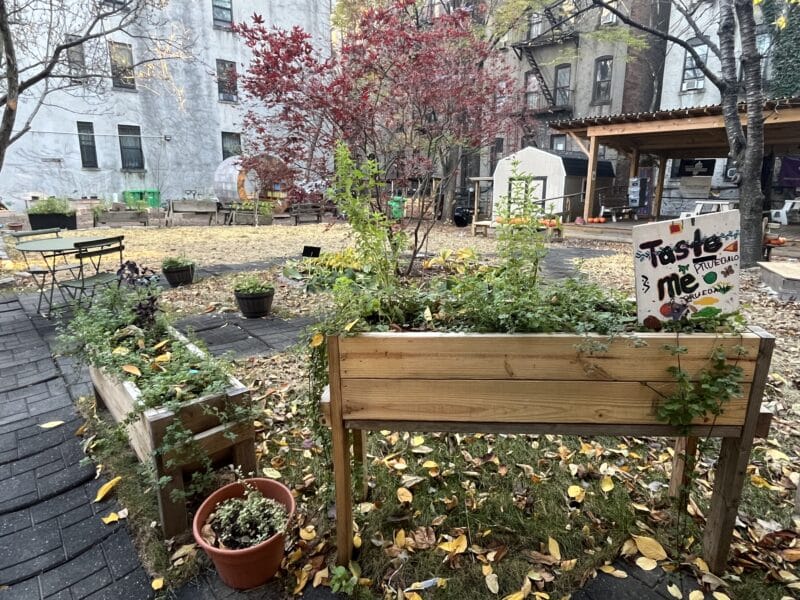
The Harlem Grown farm location on 134th Street: an urban oasis. Photo by Aaron Pietzonka
All the hard work pays off. Locals love Harlem Grown. Lille Smallwood lives just around the corner from the 127th Street farm and came to pick up food at the farm stand. “I think it’s amazing that they’re giving away all this great, fresh food and I feel like there’s a very nice diverse group that comes over here for this.” She points to a house next to the garden. “I can see this garden from my apartment. I live right over there, and I can hear the chickens.”
If you would like to be part of this community, too, you can volunteer at Harlem Grown. You can find out more here.
Tags: Aaron Pietzonka Anna Aureliano Cassim Shepard Citymakers David Anevil Farmer Paul Harlem Community Harlem Grown Lille Smallwood Paul Hewett Tony Hillary Urban farms
